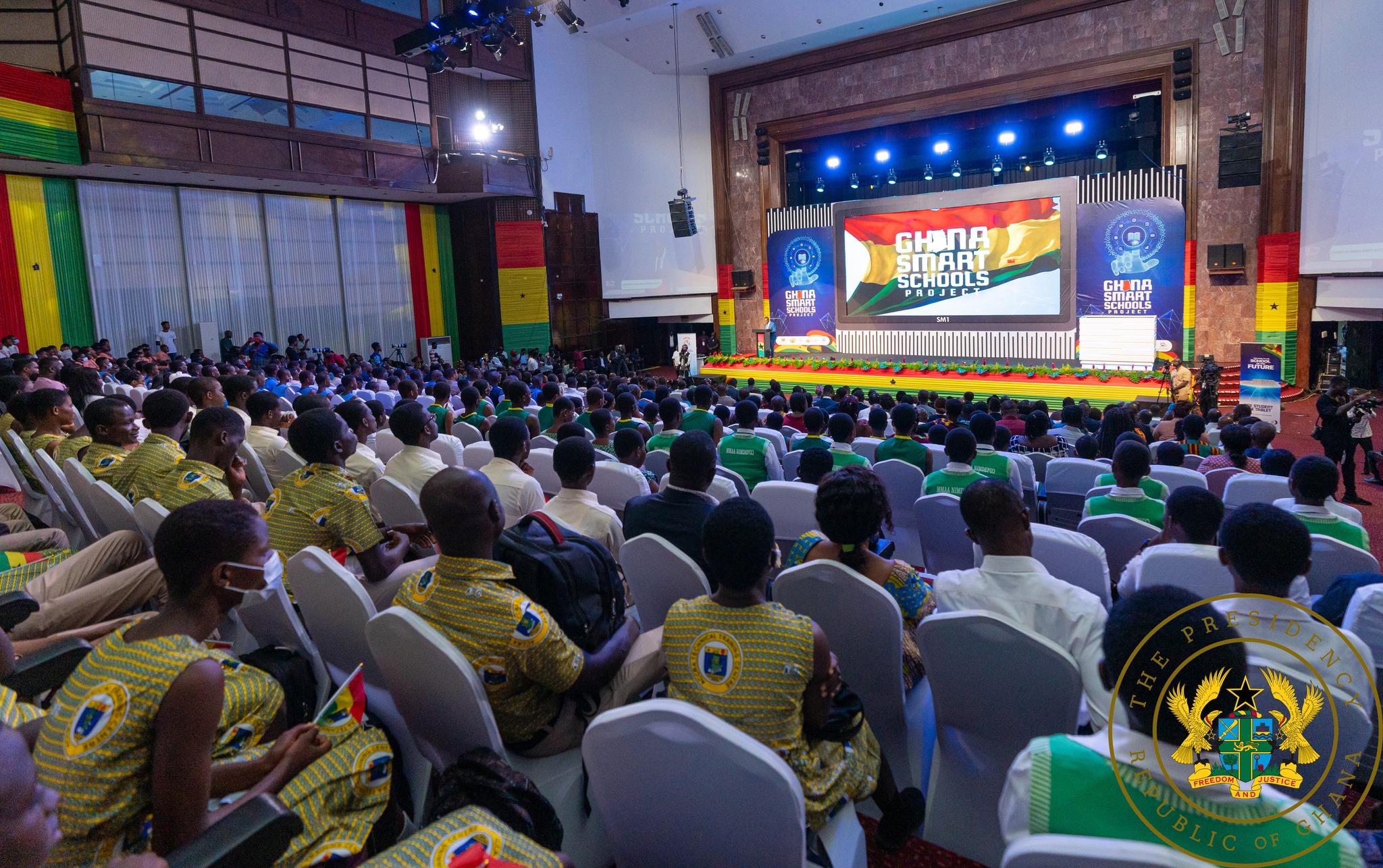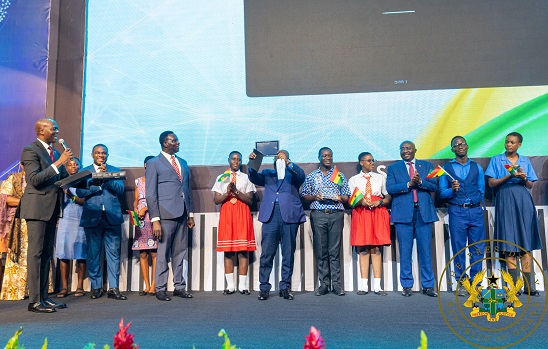President Akufo-Addo on Monday, March 25, 2024 launched the Ghana Smart School Project at the Accra International Conference Centre.
According to the President, the project is yet another intervention to add further impetus to what he describes as a transformative policy that has broken myths and liberated minds – the free senior high school programme.
The Ghana Smart Schools Project is in alignment with government’s promise to enhance the Free Senior High School Programme, leveraging on technological advancements to enable students compete globally.
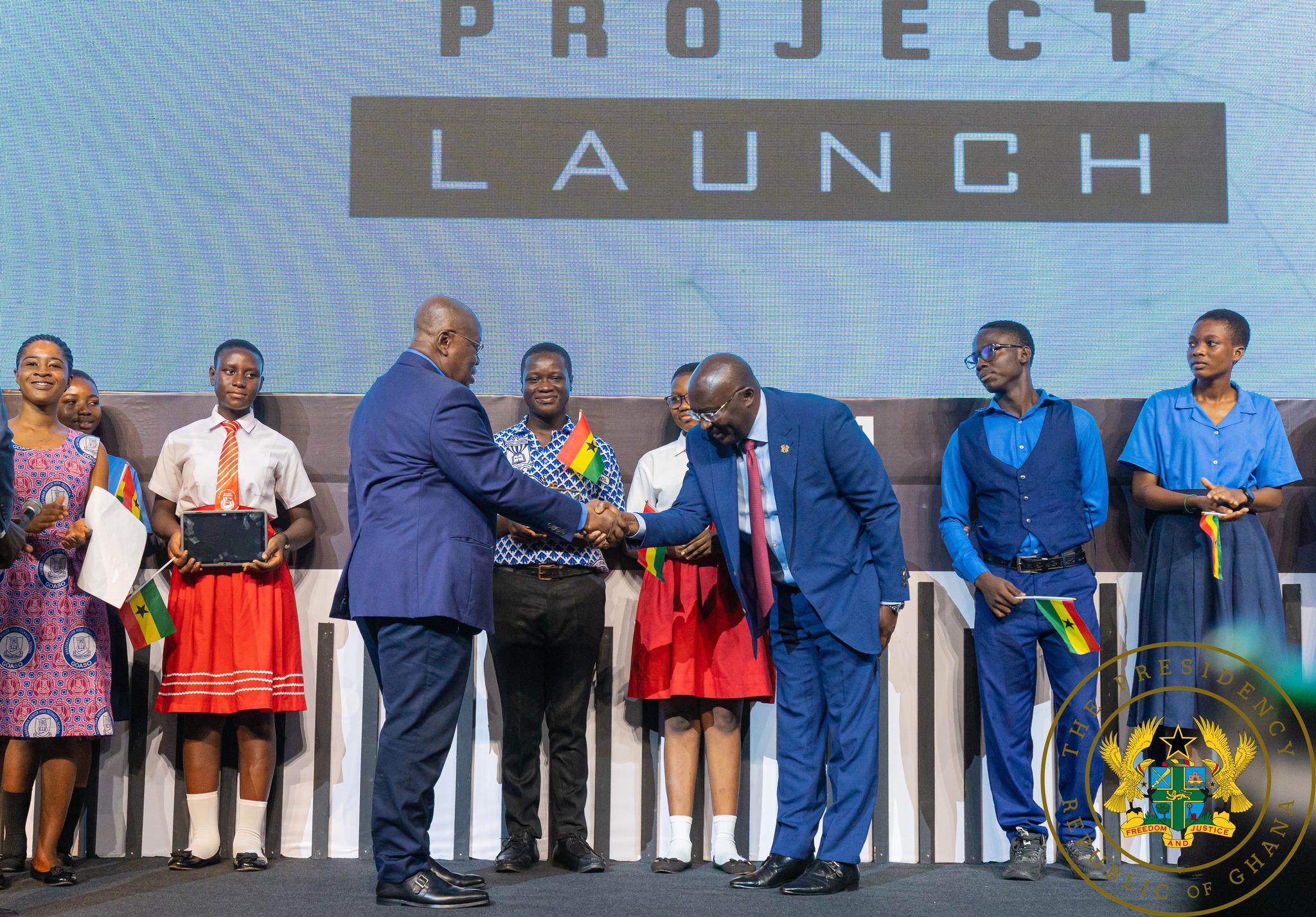
It is in fulfilment of the education for sustainable development agenda, a key element in the 2030 Agenda for Sustainable Development Goals 4, which prioritises quality education, a key driver for the attainment of all seventeen (17) SDGs.
Speaking at the launch, Akufo-Addo said 1.3 million Senior High School (SHS) students nationwide will receive Smart tablets.
"To this end, Government is proceeding with plans to distribute some one-point-three million (1.3 million) educational tablets to students in senior high schools, that is One-Student-One-Tablet, under the Ghana Smart Schools Project (GSSP)."
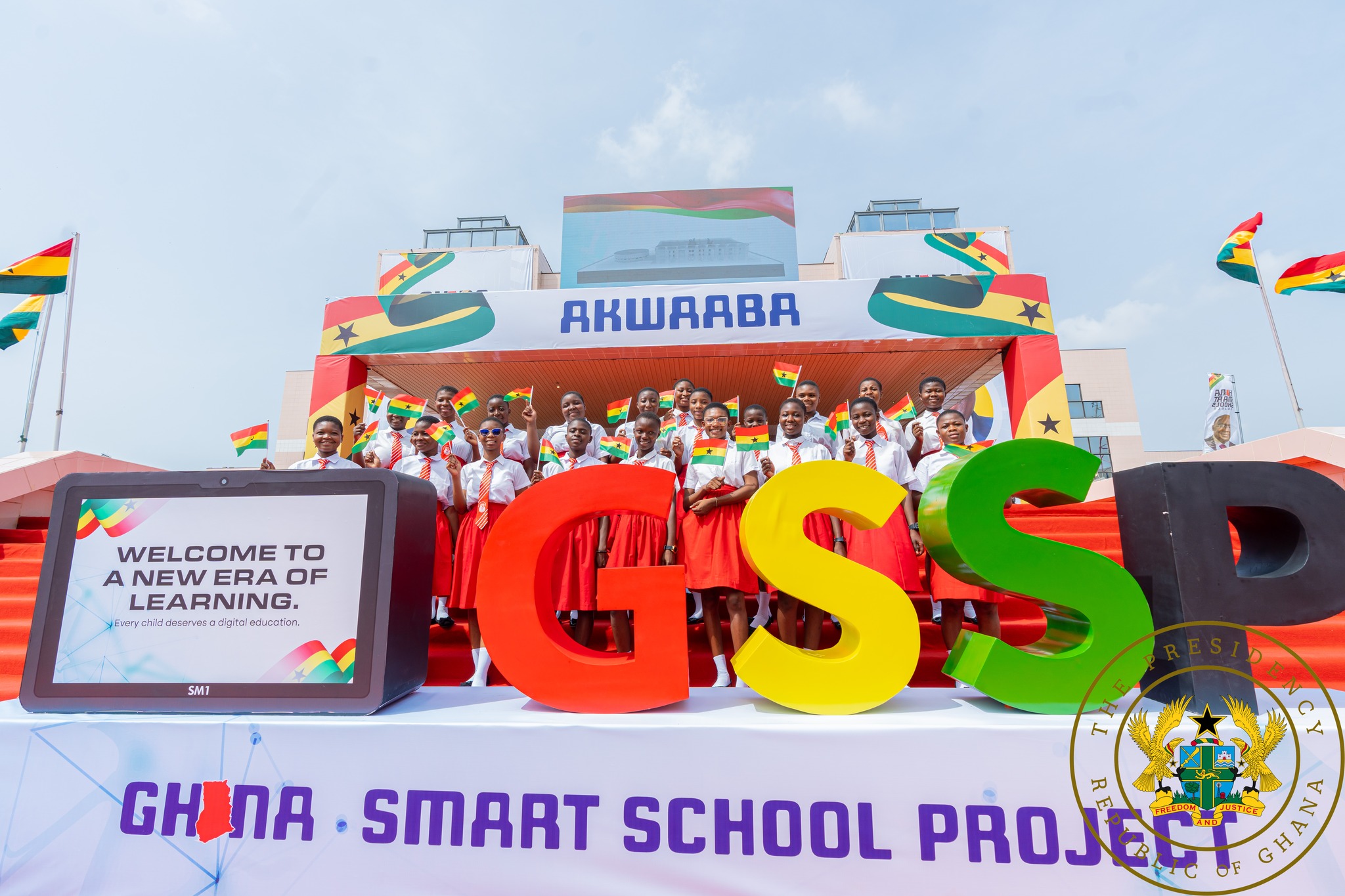
The tablets are fitted with digital contents to aid research, teaching, and learning. At the tertiary level, Government plans to provide, at a discounted price, tablets and laptops to students and lecturers to facilitate academic work.
The other component of the GSSP is the provision of modernised infrastructure. Government intends to build one hundred (100) smart schools across the country. The first thirty (30) of these schools will be completed this year, and the remaining seventy (70) expected to be completed in the next two years.
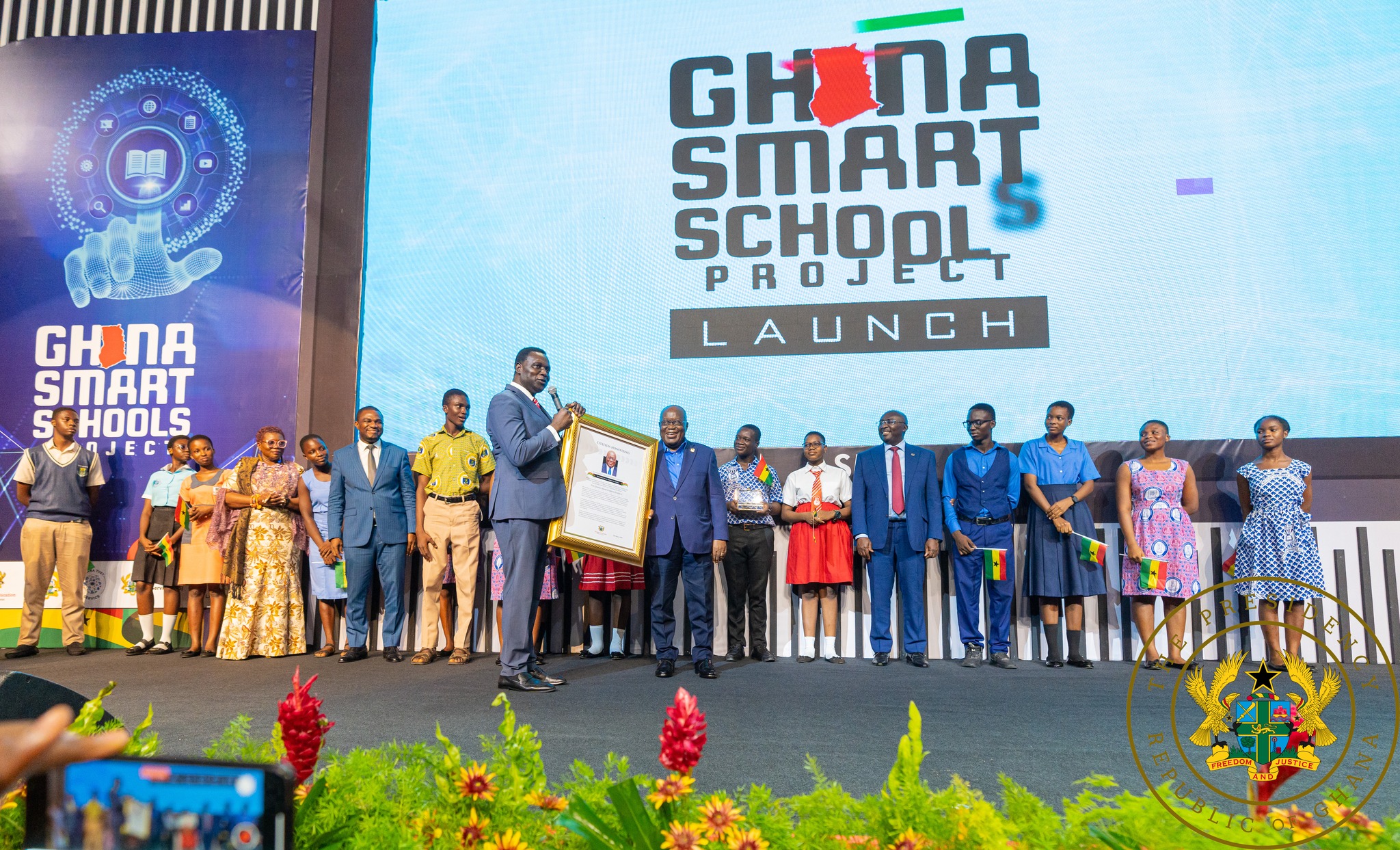
These smart school buildings will be fitted with solar panels, as we seek to promote new and environmentally sustainable energy. In effect, these smart schools will be off the national electricity grid. They will also have digitalised infrastructure to advance teaching and learning. The physical infrastructure takes cognisance of our unique climatic conditions, and will create a conducive atmosphere for learning. The schools will represent a new urban landmark for urban and rural land-use and planning. They will be modern, iconic facilities, depicting the collective resolve of a people for a transformative and futuristic education.
